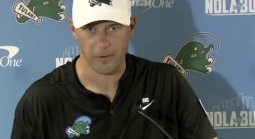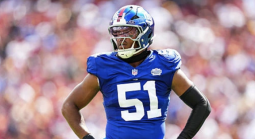Regulation vs. Unregulated: Does It Really Matter When it Comes to Sports Betting?
These days we are reading so much about how the regulated sports betting industry in the US is helping to uncover recent improprieties that would have remained unchecked in the world of offshore-only sportsbooks.
Frank Catania, a former New Jersey gaming regulator is quoted as saying: "Doing business online creates a full record," he says. "There's tracking that can be very helpful to law enforcement."
But wait!!!!
Catania made these remarks way back in 2002 when offshore sports betting was still in its infancy. Our friends at BetOnline were only three years old at the time (now about to celebrate 25 great years in business). BetCRIS, the oldest established North American bookmaker, had already acquired a handful of poorly funded sportsbooks (i.e. Don Sanchez's famed Majestic Sports and close to a dozen others).
Catania's remarks were directed at SBG Global. That offshore sportsbook, one of the largest at the time in Costa Rica, played a pivotal role in a gambling scheme tied to FSU football player Adrian McPherson in that they were instrumental in landing McPherson in prison.
First some background, courtesy of Wikipedia:
McPherson was dismissed from the football team by Florida State coaches in November 2002 amid reports that police planned to question him in connection with check theft and forgery charges; McPherson was later arrested.
After McPherson's initial arrest in November 2002, additional charges were brought by Florida State university police in March 2003 alleging McPherson's participation in a gambling scheme whereby McPherson placed bets on Florida State football games he participated in. McPherson pleaded no contest to all charges in connection with both the check fraud and later gambling charges as part of a plea deal in July 2003; McPherson received no jail time in exchange for probation and community service as part of the deal.
As Catania rightfully pointed out, McPherson moving away from a local bookie to offshore sports betting using the internet did indeed create a paper trail.
According to the FSU task force report, McPherson ran up an $8,000 debt using a bookie during his freshman season at FSU.
ESPN's Shaun Assael credited SBG Global for ensuring McPherson would ultimately face justice.
"But it wasn't until that bookie cut him off-and McPherson reportedly turned to SBG-that he created the paper trail that would come back to haunt him.
"Since SBG doesn't extend its customers credit, they have to pay for their wagering up front. That meant investigators were able to snare a Western Union receipt with the signature of McPherson's roommate. The receipt was for an Oct. 21, 2002 wire transfer to Panama. They also got records from McPherson's cell phone that showed two calls were made to SBG immediately before and after that wire transfer."
The piece goes on to detail how the Tallahassee Police were able to seize the laptop computer that McPherson's buddy, Melvin Capers, said they'd jointly used to access SBG.
"At least 57 betting receipts were found on its hard drive, including one for the Oct. 21 match-up between the Colts and Steelers. Among the ones that landed McPherson in trouble with the NCAA were receipts that showed bets were placed on FSU to beat Miami and Notre Dame. McPherson, who played against Notre Dame and started the following two games, did not testify. Ultimately, the jury deadlocked on the question of his guilt. Later, he plead no contest to a misdemeanor charge."
Our dear late friend Eduardo Agami of SBG Global worked tirelessly to improve the image of offshore books at the time, even forming a coalition that sought to self-regulate. Agami once told us the coalition reached out to the US Government requesting a means of paying taxes derived from US customers.
Eduardo, who was a former neighbor of mine in the Washington Heights section of Manhattan, would later go on to become a concert promoter in Costa Rica while still representing SBG Global. He once hosted us at an Iron Maiden concert there. His and other big egos would lead to the coalition eventually being dissolved. Eduardo was referenced and quoted in the 2002 ESPN article.
SBG Global had previously functioned as one of the first sportsbooks to operate in Costa Rica under the name SBD Global. The original incarnation was also among the first to be indicted by the Clinton Administration ("determined to make an example out of them").
The original owners, a father-and-son tandem, relinquished control to new ownership. Agami, though not an owner, would soon become the face of the company.
"It's not pleasant to be thought of as a criminal," Eduardo told ESPN at the time. Waving his hand at "all this"-by which he meant a suite of offices with accountants and lawyers-he continued, "This is a different company than it was five years ago. We're not looking to work in the shadows. We want to go from the back room to the board room."
And SBG Global was far from the only offshore gambling company instrumental in taking down criminals on US soil. The Greek, also known as Olympic Sports and operating from the island nation of Jamaica, once literally helped US law enforcement solve a triple homicide.
Meng-Ju “Mark” Wu, a 20-year-old former University of Wisconsin student, was accused of shooting three roommates: Jason McGuigan, 28; Dustin Wilson, 17; and Daniel Swanson, 25. The murders involved gambling debts, and that's where Olympic Sports enters the picture.
Wu and MacGuigan maintained wagering accounts at Olympic Sports (TheGreek.com) and it was the record of bets placed that helped forensics experts eventually track down the killer.
David Payne Purdum, who at times seems pained in covering a lot of the nonsense occurring in today's regulated market (apologies for the bad pun), tries to put a happy face on the industry more often than not.
"There’s a theory that society struggles to adjust in the early years after an illicit activity, like betting, is brought into a regulated environment but eventually adapts. I believe we’re in that adjustment period: More mistakes will be made but eventually players will learn."
There’s a theory that society struggles to adjust in the early years after an illicit activity, like betting, is brought into a regulated environment but eventually adapts. I believe we’re in that adjustment period: More mistakes will be made but eventually players will learn.
— David Payne Purdum (@DavidPurdum) June 6, 2023
Payne Purdum does an admirable job of covering the US regulated industry and at times isn't afraid to take a swipe at today's operators. He's pretty much the go-to guy for a lot of the breaking news in the regulated sports betting market. ESPN is actually one of the few media outlets that hasn't gotten into bed with the US regulated sports gambling market. Thankfully Disney, ESPN's parent company, opted not to pursue that route.
Few can forget the embarrassing 2022 SBC panel discussion featuring CNBC's Contessa Brewer failing to push back on FanDuel CEO Amy Howe's outrageous claim that "offshore sportsbooks stiff sports bettors 25% of the time", a claim that is completely unfounded but accepted as fact during the panel discussion.
CNBC, unlike ESPN, cannot claim to be disassociated with the US regulated sports betting market. Case in point, NBCU entered into a two-year partnership with PointsBet, a company that, by its own admission, has been hemorrhaging money over the years.
When it comes to regulation vs. unregulated markets, I often like to draw parallels to the airline industry.
One might be shocked to learn that most airlines in the late 1970's strongly opposed deregulation and even encouraged their employees to lobby against its passage.
From AiraandSpace:
Regulation by the federal government had enabled airlines to prosper in their infancy, but it also kept fares high and prevented airlines from operating as efficiently as possible.
Sound familiar?
Not a single company in the US regulated sports betting market has shown a profit outside of a single quarter for FanDuel. Contrast that with offshores, the unregulated, most are highly profitable. BetMGM keeps saying it is going to become profitable. We keep waiting.
The regulated companies are often attacked for cutting off customers who happen to go on winning streaks. One can monitor Twitter or Reddit to see just how prevalent this behavior actually is.
It's hard to imagine that during the days of airline regulation and the two early decades of deregulation, there would typically be multiple crashes of US commercial airlines in any given year. A large number of these accidents could've been averted through the safeguards that have since been adopted by the deregulated industry.
The offshore sports betting sector is littered with casualties and miscalculations over the last 25 years, don't let anyone tell you otherwise. Mistakes continue to be made (witness 5Dimes). But the idea that today's US regulated sportsbooks are holier than thou and above reproach is beyond laughable. Anyone who has followed this industry as long as we have can see the situation is only going to get worse before it gets any better. The US regulated sport gambling industry is akin to the early "Wild West" days of offshore sports betting, only on steroids.
- Chris Costigan, Gambling911.com Publisher














